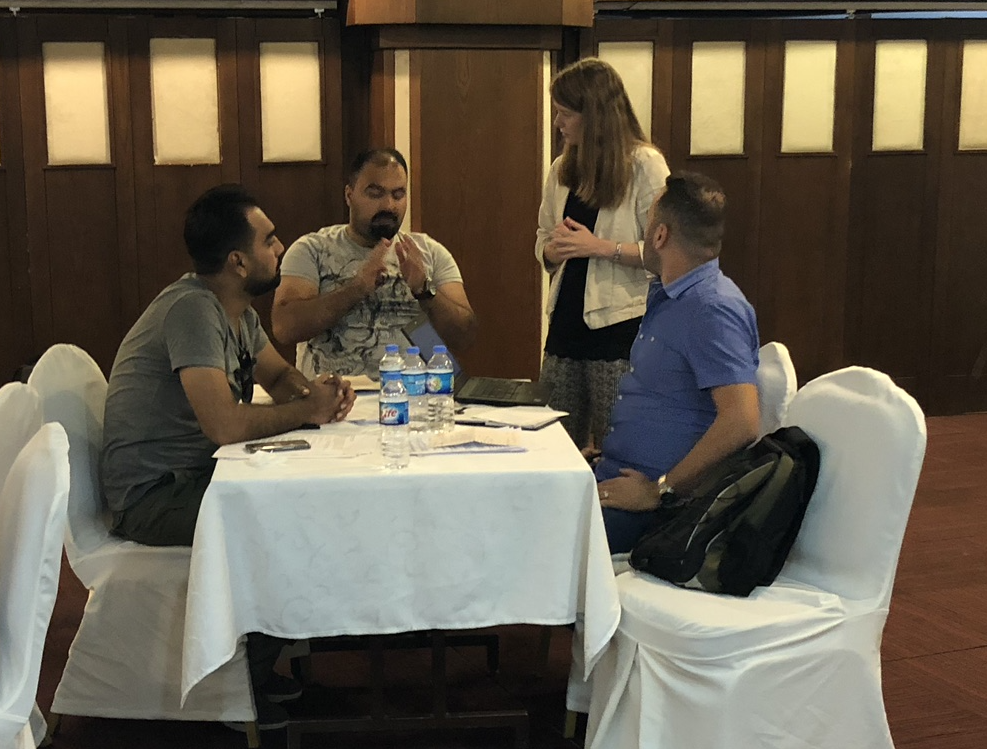
Clingendael Academy trainers went to Iraq to provide a humanitarian negotiations training for twenty-one staff members of the International Rescue Committee (IRC). The group consisted of staff active in various fields of the IRC: protection, empowerment, security, and management.
The 3-day training introduced negotiation tools and strategies which the participants put in practise in multiple simulations. Through extensive debriefing and feedback the participants gained insight in the theory of negotiation, as well as their own negotiation strengths and weaknesses.
All the IRC staff are currently working in various areas of Iraq where negotiations are an important part of their daily work. Given the current context in the country, the aid workers negotiate with a range of different actors: from different authorities to armed groups to other aid organisations.
The participants indicated that the training was useful and appropriate for them:
"I used to think that making concessions is a mistake, but now I can see how it can actually create value."
"The training was excellent, I like it because of the fact that it is practical and a reflection of the reality that we face on daily base."
"I thought the exercise and introduction of the tools were seamless in how we applied and practiced and I really appreciated the real on-the-job learning approach to introducing new ideas and concepts."
The training was part of our larger humanitarian negotiation project, which is funded by the Netherlands' Ministry of Foreign Affairs.
Should you have a training request, please do not hesitate to contact us: Evelien Borgman
Training and Research Fellow
Marlies Rotshuizen
Training and Research Fellow


Comments
Post a Comment